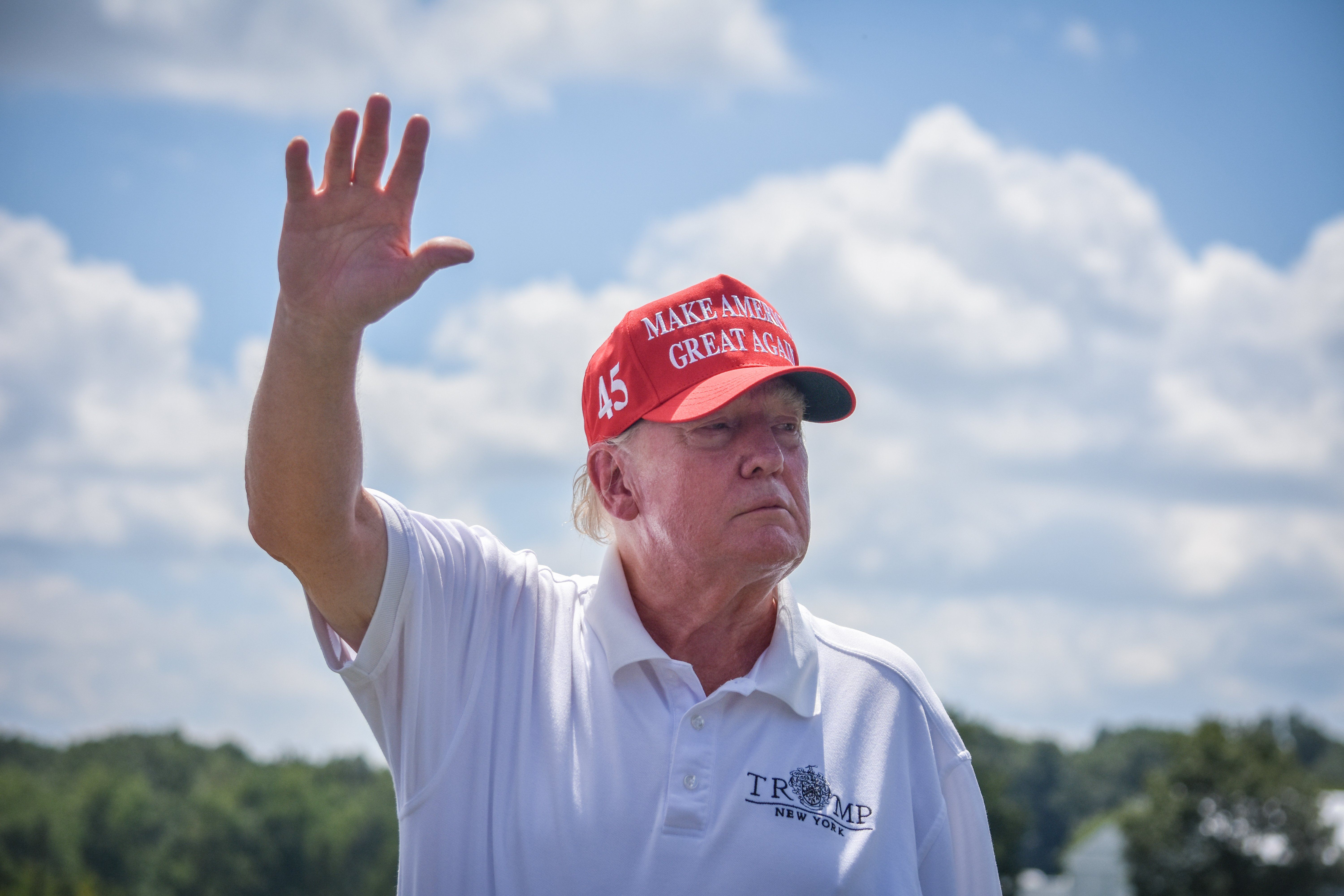Late Monday night, Donald Trump and 18 other people were indicted by a grand jury in Atlanta for conspiring to overturn the results of the 2020 election in the state of Georgia.
Trump will face 13 felony charges. Former New York City Mayor Rudolph Giuliani, former White House Chief of Staff Mark Meadows, and other alleged co-conspirators are charged with taking part in a “criminal enterprise” to flip the presidential election in a crucial state.
You can read the full indictment here.
Let’s cut to the chase: Trump has already been indicted three times – in New York City, Washington, DC, and Florida – and he faces dozens of other felony charges in those cases. And though it’s too soon to know the likelihood of a Trump conviction in any of them, there’s no evidence yet that they’ve dented his popularity. Here are the latest GOP primary numbers and matchups with President Joe Biden.
Is this case different? Might this one put Trump in real legal and political jeopardy?
In fact, Georgia may offer Trump a much tougher set of both legal and political problems. Here are three reasons why.
RICO
Georgia law features something called the Racketeer Influenced and Corrupt Organizations Act, widely known as RICO. Legal experts have warned that the broad powers this law gives a prosecutor – in this case, Fulton County District Attorney Fani Willis – can be used to charge Trump with all sorts of crimes related to the core charge of election fraud.
Under Georgia’s RICO law, prosecutors can bring such a case simply by showing the existence of an “enterprise” involved in at least two “qualifying” crimes that form part of a “pattern of racketeering activity.” He could, for example, be charged with solicitation to commit election fraud, perjury, forgery and/or improperly influencing government officials. These crimes need not have taken place in Georgia if their purpose was to overturn Georgia’s election results.
Crucially, the law doesn’t require the state to prove that Trump personally ordered, or even knew about, the commission of every crime in the indictment. It need only prove he led the enterprise that committed them.
Cameras rolling
In the interest of transparency, Georgia law requires there be cameras in the courtroom, unless a judge has a compelling reason not to allow them. This entire case may well play out on live television.
Yes, Trump is still riding high in Republican primary polls and running neck and neck with Biden. But undecided general election voters, particularly the independents Trump needs to win over in Nov. 2024, can now have a much closer look at the evidence against him. They won’t simply hear about it from Trump himself or from Trump-friendly media.
He also faces the risk that after months of televised daily legal grind, public fatigue with his long list of criminal charges will start to set in.
Unpardonable crimes
Despite all this, Trump may well be elected president next November, and the president of the United States can legally pardon convicted criminals. In theory, a president could pardon himself, though that idea has never been tested by US courts. But the charges facing Trump in Georgia are for state, not federal, crimes. No president can pardon someone convicted in state court.
Complicating matters further, under Georgia law, the governor couldn’t pardon a convicted president either. (There are already plenty of hard feelings between Trump and Governor Brian Kemp, who refused to help Trump reverse the state’s presidential election results in 2020.) If Trump were convicted in Georgia, only a five-member pardon board could absolve him. That’s a far more complicated problem.
The bottom line: Donald Trump has defied political and legal gravity for years. A poorly prepared prosecution, a friendly juror or two, and continued support from committed followers might well keep him aloft through 2024.
Or, Georgia might prove the band Radiohead right: “Gravity always wins.”
More For You
Ian Bremmer sits down with former US Ambassador to NATO Ivo Daalder to unpack a historic shift in the transatlantic alliance: Europe is preparing to defend itself without its American safety net.
Most Popular
Think you know what's going on around the world? Here's your chance to prove it.
Argentina, Armenia, Belarus, Egypt, Indonesia, Jordan, Pakistan, Paraguay, Vietnam – to name only a few.
A poster featuring Andrew Mountbatten-Windsor, formerly known as Prince Andrew, is installed on a sign leading to the parking area of the Sandringham Estate in Wolferton, as pressure builds on him to give evidence after the U.S. Justice Department released more records tied to the late financier and convicted sex offender Jeffrey Epstein, in Norfolk, Britain, February 5, 2026.
British police arrested former Prince Andrew Mountbatten-Windsor today over allegations that in 2010, when he was a UK trade envoy, he shared confidential government documents with convicted sex offender Jeffrey Epstein.
